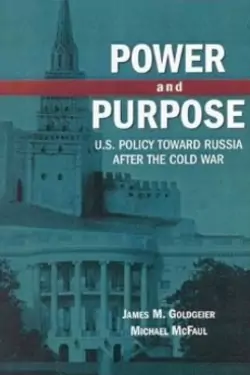
Power and Purpose
U.S. Policy Toward Russia After the Cold War

- Book
- Foreign policy analyses written by CFR fellows and published by the trade presses, academic presses, or the Council on Foreign Relations Press.
More on:
Russia, once seen as America's greatest adversary, is now viewed by the United States as a potential partner. This book traces the evolution of American foreign policy toward the Soviet Union, and later Russia, during the tumultuous and uncertain period following the end of the Cold War. It examines how American policy-makers—particularly in the executive branch—coped with the opportunities and challenges presented by the new Russia.
Drawing on extensive interviews with senior U.S. and Russian officials, Council Fellow James Goldgeier and the Hoover Institute's Michael McFaul explain George H. W. Bush's response to the dramatic coup of August 1991 and the Soviet breakup several months later, examine Bill Clinton's efforts to assist Russia's transformation and integration, and analyze Geroge W. Bush's policy toward Russia after September 11 and the war in Iraq transformed international politics. Throughout, the book focuses on the benefits and perils of America's efforts to promote democracy and markets in Russia, and to reorient Russia from security threat to security ally.
More on:
 Online Store
Online Store
